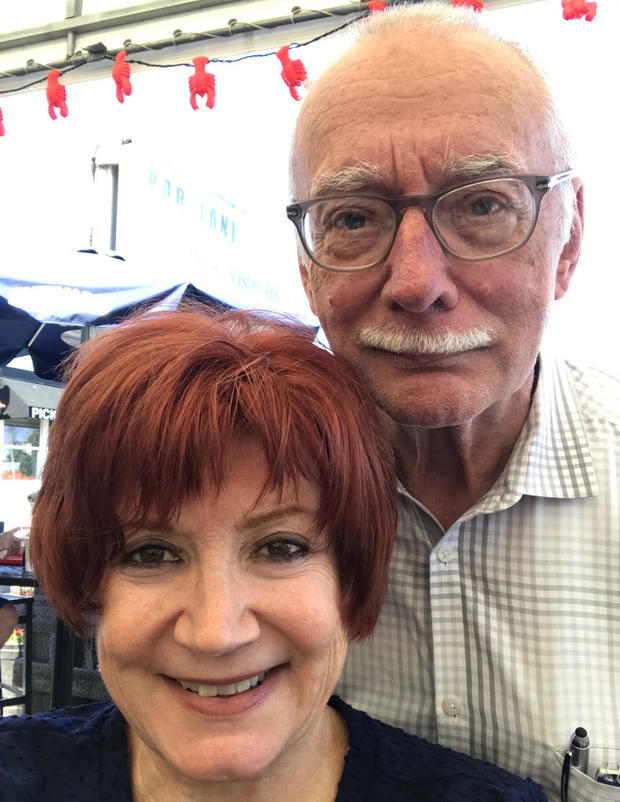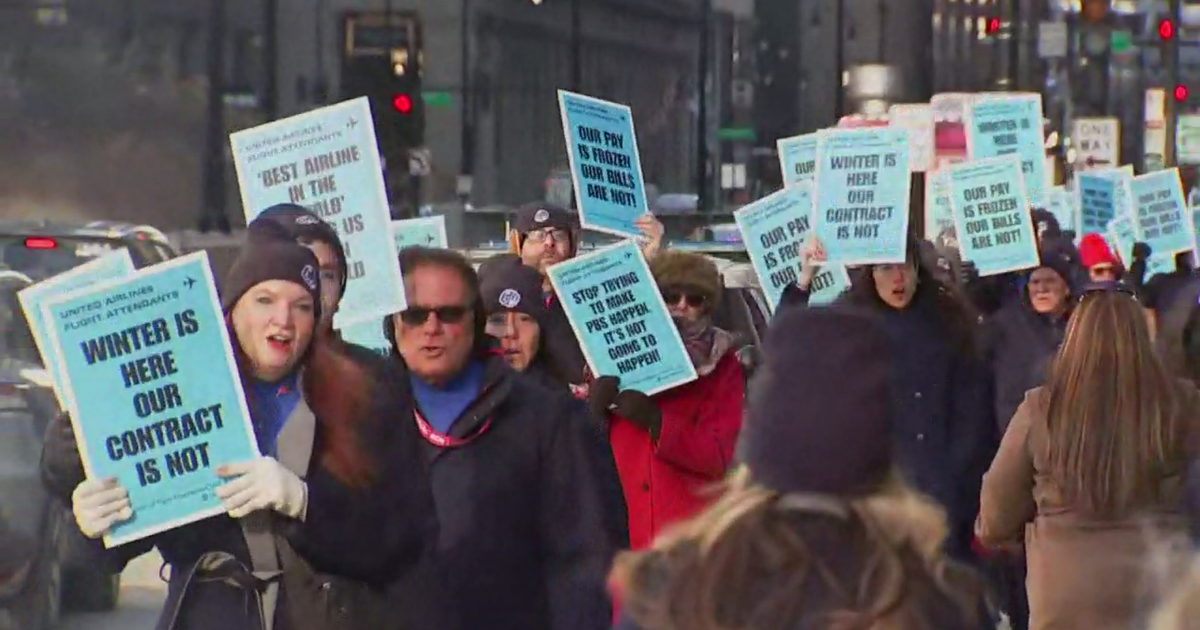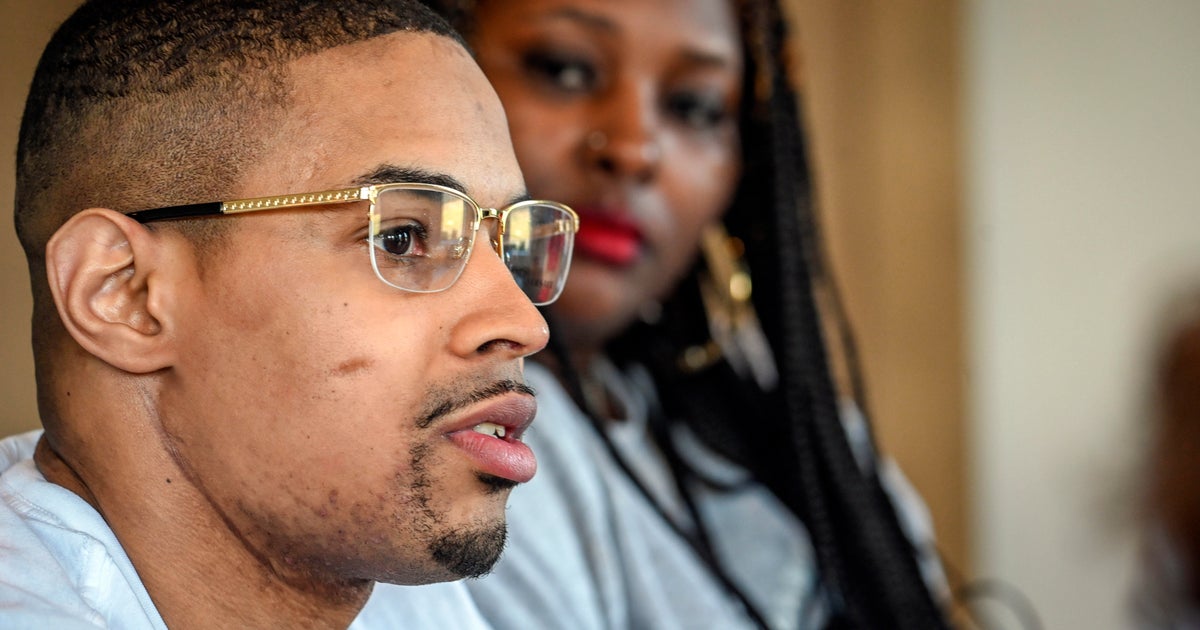Southwest flight attendant sues airline over husband's COVID-19 death
A Southwest Airlines flight attendant whose husband died of COVID-19 is suing the carrier, alleging it failed to follow safety protocols at an employee training event and led to the worker contracting the disease and passing it on to her spouse.
Carol Madden, 69, has worked for Southwest for four years, a job she described as her "dream." Last summer, her husband, William Madden, drove her to and from a mandatory training session in Baltimore. Three days after the July 13 event, Madden and her husband both developed COVID-19 symptoms. While Carol Madden recovered, her husband was admitted to the hospital August 1 and died a week later at age 73.
In a lawsuit filed asking for $3 million in damages, Madden claims Southwest ignored public health guidance from the U.S. Centers for Disease Control and Prevention at the day-long training event. According to the suit, flight attendants practiced using fire extinguishers, oxygen masks and a defibrillator, operating airplane exits, and performing self-defense, among other tasks.
Nobody asked the 10 trainees any health screening questions, took their temperatures or tested them for COVID-19, the complaint alleges. They were not told to maintain proper social distance, and all touched the same equipment that was not sanitized between uses, according to the suit.
The trainees also practiced self-defense on a human-sized dummy, nicknamed Bob. Although this "led to heavy breathing and contact with shared surfaces, Southwest failed to sanitize Bob or any of the other equipment used," the complaint alleges. The workers did wear masks, but not consistently, while participants at the training session sat in a classroom with just three feet between them, according to the complaint.
A coworker who shared a desk with Madden tested positive for COVID-19 three days after the event, but Madden only learned of the diagnosis from the colleague's Facebook post. Southwest did not inform Madden that workers at the training day tested positive for COVID-19 until two weeks later, according to the complaint.
"Why did they not employ the same types of safety precautions as they employed for their passengers? Why did they not ask the people before they entered the room if they had been exposed to anyone with COVID, or even, God forbid, test them?" Madden's attorney, Dan Mastromarco, told CBS MoneyWatch.
Southwest: Family not our responsibility
Southwest last week moved to dismiss Madden's lawsuit. In a filing in the U.S. District Court for the District of Maryland, the airline said it was impossible to prove Madden got COVID-19 at the training. Even if such a link could be established, however, Southwest had no responsibility to ensure her husband's health, the company argues.
"While it is true that an employer owes an employee a duty of care to provide a reasonably safe work environment, that duty does not extend to members of the employee's household," the filing states.
Asked to comment on the lawsuit, Southwest sent CBS MoneyWatch a statement emphasizing its pledging its commitment to keeping workers and customers safe.
"We extend our sincere sympathy to Ms. Madden and the many people worldwide who have lost loved ones to COVID-19. Out of respect for the parties involved, and in an effort to maintain confidentiality, we are not providing commentary on the pending litigation," the statement said.
"Since the beginning of the pandemic, the safety and well-being of Southwest's employees and customers has been our uncompromising priority," the statement continued. "Southwest has taken enhanced measures to clean and maintain our aircraft, airports and work centers and follows all notification guidelines in accordance with the CDC."
Family matters
Madden's suit is one a handful of lawsuits seeking to hold companies accountable for the deaths of an employee's family member.
In the past, similar cases have focused on workers who bring asbestos home on their clothing and sicken family members, said Diane Hoffmann, director of the Law and Health Care program at the University of Maryland's Francis King Carey School of Law. But courts have split when it comes to ruling on whether employers are responsible.
"Maybe for policy reasons, they think this is going too far in terms of what we make employers responsible for. Courts consider things like jobs, industry, if it's a company that employs a lot of people," Hoffmann said.
For Madden, the biggest legal challenge in the case will be proving she contracted COVID-19 while at work. That's one reason such suits have been relatively rare, attorneys say. Out of 10,200 coronavirus-related lawsuits tracked by the law firm Hunton Andrews Kurth, fewer than 200 relate to working conditions. (Nearly 40 lawsuits have been filed against airlines, most of them relating to customer refunds, according to the firm.)
"It's very hard to show, the way the virus is, where you got it," Alejandro Leiva, an attorney at Greenspoon Marder who represents employers, said in a recent seminar. "Did you really get it from your manager? Or did you get it from your neighbor? Maybe you got it from your child at breakfast? Causation is very hard to prove."
Mastromarco said Madden "was inordinately careful in her private life" and expressed confidence he can prove she got COVID-19 at work. "We don't exactly know when the [transmission] took place during that day, but it undoubtedly did take place because of their lax standards," he said, referring to the training session at the heart of Madden's suit.
Back at work
One thing has changed, according to Madden: How Southwest now runs the annual flight attendant training. Madden, who was back at the mandatory event this week, said the difference was stark.
"Everyone must wear gloves, which they are providing. All equipment is being wiped down after each use," Madden wrote in an email through her attorney. "Signs everywhere for social distancing, smaller groups, they sprayed down all tables and chairs in the classroom before we were allowed in after prior class and one instructor is handing out are [sic] bagged lunches! Tremendous changes."






